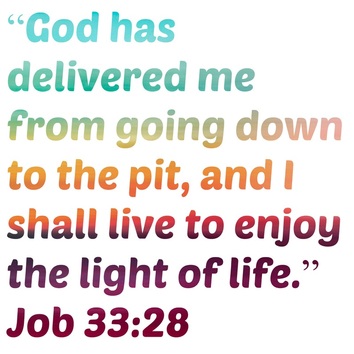|
There are times when I get discouraged, thinking I should be farther ahead in my Christian life than I am. Sometimes I become frustrated because I need to be patient and hold my tongue, yet I say things I wish I never would have said. However, my new hobby has reminded me that I am a work in progress and sometimes that progress takes a while.
I have always wanted a rock polisher and recently a friend of mine bought me one for my birthday. I like how polished rocks feel in my hand and enjoy admiring their beauty, but I had no idea that polishing a rock took so long! To start the process, you need to find the right rocks. You want rocks that have color and character, two things that make them worth looking at. Then you need to make sure these rocks are the right size. They can’t be too big, or too small. If they are too big, the abrasive won’t work, but if they are too small, they just disintegrate. After selecting the rocks that are the right color, character, and size, you put them in the tumbler, add the coarse abrasive and water, and let the rocks tumble against one another for seven to ten days. When this process is over, you wash the rocks, put them back in the tumbler with a medium grip abrasive and let them tumble for another week. After the second tumble is over, you rinse them, add a fine abrasive grit, and tumble them for another week or so. When the rocks feel smooth you rinse them, add polish to the tumbler, and let them roll for another week. Finally you rinse them yet again and tumble them with soap for a day. By the time this whole process was over, it had taken me five weeks to polish a handful of rocks! God is in the polishing business. When we become Christians, we are rough around the edges and live unpolished lives. Our language might be a little colorful, our choice of clothing a little provocative, and our hearts may need a little correction. But over time God patiently works in our lives, through people and circumstances, smoothing out the rough spots because He sees the gem inside. The biblical word for this is “sanctification” and it implies submitting to God’s will, and in the process, becoming more holy. Sometimes this process can be painful, but the end result is worth it. When we allow God to sanctify us, God will smooth out the rough edges and we emerge polished, beautiful and more like Him. If you feel like your spiritual life isn’t where it should be right now, be patient. Trust that God will continue to smooth out your rough spots and take off your sharp edges making you even more beautiful inside than you already are. Stay strong and press on. God isn’t finished with you yet.
0 Comments
I like to be busy. When working outside I will have about six projects going on at the same time. When I get bored with one, I switch to the next. Part of this is because it’s how I’m wired. I’m an “activator” type person, so I find pleasure in filling every moment of every day, from the time I get up to the time I go to bed. Although I don’t create lists just to check them off, I feel a deep sense of fulfillment when I accomplish a task.
The other day I was meeting with my spiritual mentor and he asked me how often I take time to pause. The question didn’t need clarification or explanation; we both knew exactly the point he was trying to make. My answer, “Good question.” The truth is that I don’t take time to pause and contemplate. It’s not that I think pausing isn’t a worthy investment of my time, it’s just that I can’t seem to fit it into my day. At least, that is what I subconsciously thought, until the day I paused. The day after we met I changed my morning routine. I made the kids breakfast, got them on the bus, then went and worked out. I came home, showered and then, instead of going downstairs to work on the computer or firing up some new project, I paused. We have a rocking chair upstairs in our home near the window. Usually the chair faces into the room, so I turned it around so it faced out to the field across the street. Then I sat in it with a cup of coffee and contemplated. My mentor had told me to take five or ten minutes just to pause and contemplate, so I set the bar high and committed to sitting still for ten minutes. (The last time I did that I was in my deer stand.) Normally I would begin to fidget after five minutes, but this time was different. I felt that I needed to pause and contemplate what it means to be at peace. And dare I say it? I found it refreshing. Since my initial pause, I have not turned my chair around. I have actually begun to practice pausing several times during the week. It has been refreshing to just “be.” Sometimes I read my Bible then pause. Other times I read a devotional then pause. I have found you can’t do both at the same time (I tried). The art of pausing for a few minutes just to contemplate the attributes of God and the realities of His presence has been amazing to practice. I have even been able to pause while my family is at home. I just slip upstairs, close the door, pause for five minutes, and then return. My kids just think I am in the bathroom. (By the way, pausing on the stool doesn’t count). Who would have thought that sitting still and quiet would have propelled my spiritual life to a new depth? Here comes the challenge... Pause. That’s right, pause. Your pause might look very different than mine. You might want to pause before you head into the office for the day; just sit in the car in silence for five minutes. You can pause for five minutes before you go to bed, or pause immediately after you get up. You may want to pause after lunch, or right after you get home from work. When my friend suggested pausing to me, I did it because I said I would. Now that I have realized the benefits, I am pausing because I see the value in it. I think you will to. Ready, set, pause. 1 The LORD is my shepherd; I have all that I need. 2 He lets me rest in green meadows; he leads me beside peaceful streams. 3 He renews my strength. He guides me along right paths, bringing honor to his name. Psalm 23:1-3  There was a point in time when my wife Kathi and I were not talking to each other very much. We had a problem in our family that we didn’t know how to solve and instead of getting help, I became angry with her because I didn’t know what else to do. She was upset with me and we rapidly drifted apart. All we did was talk about which kid needed to be where and when they needed to be there. I lived my life and she lived hers. Quickly I realized we were functioning like roommates and not a married couple. I looked in the mirror one morning and thought to myself “How did we get here?” Have you ever been in a bad relationship and asked yourself “How did I get here?” Have you ever found yourself ten years into a job that you hate, asking “How did I get here?” Have you ever felt like your relationship with God was non-existent and asked yourself “How did I get here?” If so, you are not alone. Some of the greatest biblical heroes had moments when they felt lost. The Bible tells us that David had an affair with Bathsheba and then had her husband killed. He must have wondered “How did I get here?” Abraham gave away his wife to a pagan king. At some point he must have wondered “How did I get here?” After living a life of opulence and killing an Egyptian, Moses became a shepherd with almost no interaction with other people. At some point while tending to his flock in the middle of nowhere, he must have asked himself “How did I get here?” Yet in spite of their failures, God used them. The book of Judges describes the life and times of Israel and its spiritual leaders, called Judges, after they moved into the Promised Land under Joshua’s leadership. Joshua was an excellent leader and the people who followed him were faithful to God. His armies were victorious because they put God first and did what God told them to do. Because they honored God, God was their guide and protector. Then Joshua died. As soon as their faithful leader died, the people stopped worshipping God and from that point life went downhill. Every battle the Israelites fought they lost. Their homes were plundered and many of them were sold as slaves. It was a drastic turnaround from what they had known - their good life in the good land had gone bad very quickly. At some point they must have wondered “How did we get here?” After realizing how far they had drifted from God, they would cry out to Him, then God would send a judge to help. The Lord would send another judge who would guide the people and provide leadership. God didn’t give them a king because he wanted to be their king. God is the Lord of lords and King of kings. This is why he appointed judges to lead the people instead of a king. But as soon as the judge died, the people strayed away from God. This happened with Joshua, then with the judge Othniel, and with the judge Ehud. While they were alive and leading, the people thrived. As soon as they died, the people drifted. This pattern was consistent throughout the entire book. It was a cycle of sin, bondage, repentance, devotion, followed by sin and bondage again. “18 Whenever the Lord raised up a judge for them, he was with the judge and saved them out of the hands of their enemies as long as the judge lived; for the Lord relented because of their groaning under those who oppressed and afflicted them. 19 But when the judge died, the people returned to ways even more corrupt than those of their ancestors, following other gods and serving and worshiping them. They refused to give up their evil practices and stubborn ways.” Judges 2:18-20 Even though God's people were living in God's Promised Land, they wound up wandering in the corn field far from God. They were not living like spiritual people. They may have been physically where God wanted them to be but their hearts were still in the wrong place. This is what caused all the problems. Even the greatest people can lose focus and wind up far from God. If it could happen to God’s people who lived in the Promised Land, it can happen to God’s people who fill the church. The question is, how long will it take for you to cry out to God? Will it take a marriage crisis? A health crisis? A financial crisis? God does not create all the crisis that we have, but he can and will use them to develop a greater dependency upon him. Here is the key, if you find yourself in a place you should not be, don’t keep going in that direction expecting things to change. Stop and seek God. Ask him for wisdom and guidance. Ask him for strength. Don’t wait twenty years like the Israelites. Don’t get hung up on guilt, shame, and regrets wondering how you got where you are. Just focus on going to where God wants you to be. When God’s people cry out, God becomes present. He shows up with peace, with grace, with love, and with direction. Job endured some of the worst trials anyone could ever imagine and toward the end of his life he said “God has delivered me from going down to the pit, and I shall live to enjoy the light of life.” Job 33:28 Most people stray from God so gradually that they don’t even realize how far away they are. We need to be tenacious and intentional about growing closer to Christ every day so you will be less likely to gradually slip away from him. The Israelites were forced to ask “How did I get here?” only after being forced into slavery and having their homes plundered and once their lives became miserable, they finally cried out to God for help. That is why believers should be tenacious about growing closer to Christ every single day so they don’t wind up wandering somewhere out in the corn field asking “how did I get here?” Stay connected to Christ and keep growing closer to Him one day and one decision at a time. |
Archives
November 2022
|

